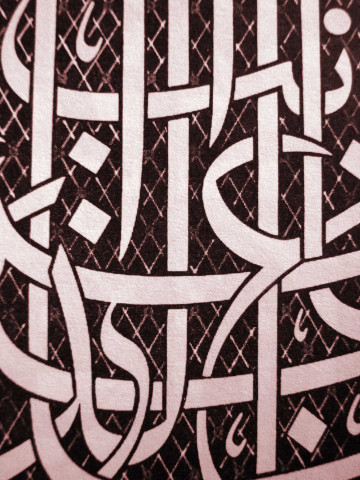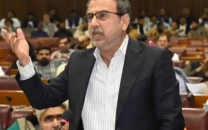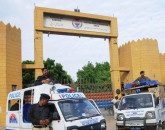When she writes: Writing to deal with inner demons haunt female authors
Attiya Dawood, Sheen Farrukh, Kishwar Naheed talk about writing in a man’s world.

In our society, the woman who dares to pen the events of her life becomes vulnerable to the salacious tongues of those around her. PHOTO:FILE
When Attiya Dawood sat down to write her autobiography during a visit to India, the process was fraught with fear and pain. She could not put pen to paper as any other male writer would; she knew she was pushing boundaries and questioning social mores. And while writing helped to exorcise the demons chasing her from early girlhood, they also left her vulnerable to the barbs of critics who freely misconstrued her meaning.
Woh ik baat saaray fasany me jiska zikr na tha
Wohi bat un ko bahot nagawar guzri hai (Faiz)
Had the autobiography been written by a man, there would have been no need to indulge in such an exercise. But our male-dominated society has always felt the need to restrain frank disclosures and uninhibited expression from female writers. And this is true not just of our part of the world — the cover of the first edition of Jane Austen's Pride and Prejudice proclaimed that it was authored 'by a lady', as if the fact of a woman writing was an amusing novelty.
In our society, the woman who dares to pen the events of her life becomes vulnerable to the salacious tongues of those around her, becoming an easy target and the topic of gossip. Yet this has not discouraged women writers from the subcontinent. Kishwar Naheed dared to write Buri Aurat ki Katha (The Story of a Bad Woman) while Azra Abbas penned Mera Bachpan (My Childhood) and Sheen Farrukh wrote her autobiography Jeenay ka Jurm (The Crime of Living). And while they spoke out against patriarchal injustice, they were not spared by it.

Attiya disclosed a love affair she had before getting married in her biography, and she feared her writing would become a cause of shame for her husband and daughters. "Writing the events of the painful life I led as the daughter of a village clergyman in rural Sindh was not easy. But it also gave me new life," said Attiya. Azra wrote on topics that are considered taboo and appears as a rebellious girl in her autobiography. She writes about the frustrations she felt in her girlhood, and how she would deal with them by going into the street to cycle or play gilli danda. Sheen Farrukh felt suppressed because she was not economically empowered and relating her life story eased the pain.
Sometimes, what can be harder to deal with is the aspersions on the writing itself. "People tend to see good points in my poetry but they find lies in my autobiography," says Attiya. "'Is that true?' they frown."
According to Kishwar Naheed, there has always been a bias against women autobiographies, which were considered frivolous and not real literature up until the 1960s. But she now sees a definite change in today's woman who is more aware and independent.
Published in The Express Tribune, April 6th, 2014.


















COMMENTS
Comments are moderated and generally will be posted if they are on-topic and not abusive.
For more information, please see our Comments FAQ